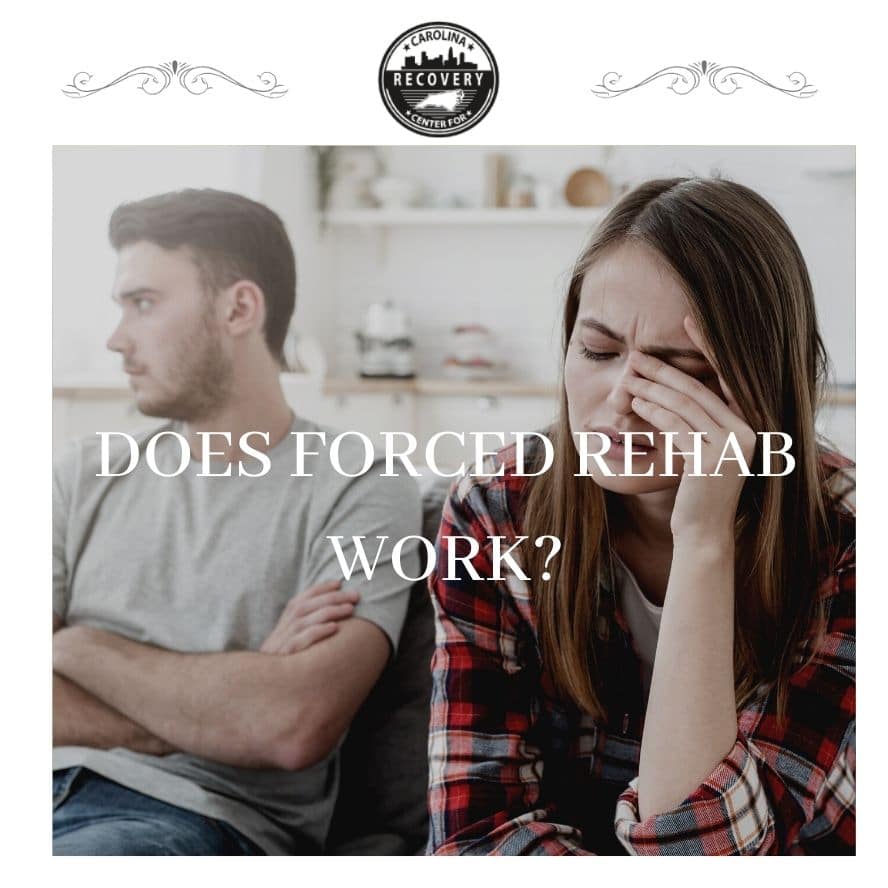Does Forced Rehab Work?

Medically Verified: 2/1/24
Medical Reviewer
Chief Editor

All of the information on this page has been reviewed and verified by a certified addiction professional.
There are few things that leave you as frustrated and powerless as watching a loved one struggle with drug or alcohol addiction. Addiction can ravage personal relationships, get people into legal trouble, and have lasting consequences. If you are close to someone who is abusing drugs or alcohol and refusing to get help, it is understandable that you are willing to do whatever it takes to convince your loved one to go to rehab. If you have already tried a private conversation and a staged intervention, you may be wondering whether or not forced rehab really works.
In a perfect world, everyone would be willing to go to treatment after being confronted by concerned loved ones. However, this is not always the case. When confronted about substance abuse, many people become defensive, angry, and dishonest. They may refuse any and all types of help offered to them. You may find yourself entangled in an ongoing argument with your addicted loved one. And, when you reach your last resort, you may turn to involuntary commitment laws that allow you to force your loved one into rehab.
Is it Possible to Force Someone to Go to Rehab?
Depending on what state you live in, you may or may not be able to file for involuntary commitment. If you are local to North Carolina, there are laws that enable you to force your loved one to go to rehab. Most laws have some sort of involuntary commitment law, and some states, like Kentucky and Ohio, have Casey’s Law, while others like Florida have the Baker Act and Marchman Act. A local addiction treatment provider or attorney can let you know the details regarding involuntary commitment in your state.
When is Forced Rehab A Good Idea?
It is always ideal when a person is willing and motivated to go to rehab, but this isn’t always the case. There are some circumstances during which forcing someone to go to rehab is the only – and best – alternative. Consider the following before pursuing involuntary commitment for a loved one:
- Have you tried other methods first? Before forcing someone to treatment, you should try confronting them and staging an intervention. Forced rehab should be your last resort. Treatment is generally more effective when patients go to rehab at their own will.
- Is your loved one a danger to themselves or others? If your loved one is considered a danger to themselves or others, treatment cannot wait. This is a situation that almost always warrants involuntary commitment.
- Are you willing to be the “bad guy” and offer your full support – all at the same time? If you file for involuntary commitment, your loved one may get mad at you. They may see you as the bad guy. However, they still need you to offer your support, and they will forgive you in time. You must be willing to be the brunt of their anger while promising to offer your full support.
If you’re unsure of whether or not forcing your loved one to go to rehab in North Carolina is a good idea, contact one of our addiction treatment specialists. They can help you figure out your next step.
Does Rehab Work if Someone is Forced to Go?
As previously mentioned, rehab is typically more successful if patients are willing and motivated to recover from substance abuse. However, that doesn’t mean forced rehab doesn’t work. When someone is committed to rehab, they go through detox and begin counseling. Oftentimes, detox and a little bit of counseling are enough to open a person’s eyes and make them realize that they really do have a problem. Addiction treatment centers can even utilize special therapy methods, like motivational interviewing (MI), to help reluctant patients find motivation for recovery.
It’s important to remember that between 40-60% of people relapse after rehab – even when they are willing to go in the first place. That is because addiction is a chronic disease with relapse rates similar to those of asthma and hypertension. However, a major part of treatment involves psychoeducation. Educational sessions teach patients about the disease of addiction as well as harm reduction methods. As a result, forced rehab can introduce patients to resources in the recovery community as well as harm reduction clinics to help keep them safe, and most importantly, alive, if they do return to drug use after rehab.
In the end, forcing someone to go to addiction treatment can’t hurt. It can be a great option for people who have run out of other options.
Find Help for an Addicted Loved One in North Carolina
As a family-owned and operated drug and alcohol rehab center, we know how important family support is during the recovery process. That’s why we offer much more than your basic treatment services. Our family support program can assist you and your loved ones with all of your needs. Whether you’re looking for help for an addicted loved one or need more information about involuntary commitment in North Carolina, we’re here to help. Call today.

